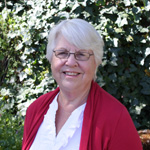A Senior? An Elder? An Older Adult? Who Are They? Who Are You?
October 12, 2018

I recently saw a banner proclaiming “Hug a Senior” flying over a much traveled street. I don’t know about you but I’m particular about who I want a hug from. Do I want a hug from you? And for that matter, what makes me a senior? Is this statement ageism? A recent article in Aging Today, a publication of the American Society on Aging states, “ageism is a tenacious presence in American society. The pervasiveness of ageism portrays “older people as either doddering or super-agers.”
Some years ago (quite a few actually), I started high school looking with awe to the senior class who led the school on the football field, Senior Prom, Student Council and other prestigious (to me) positions. After four years I too was a Senior and realized that important decisions were ahead of our class of Seniors. We were on our way to growing up.
I went into the grocery store after seeing the banner. As I shopped the aisles, I wondered if I would be offended if a total stranger came up to give me a hug. After all, I have white hair, wrinkles and am positive I qualify for this age category. Other than several “hellos” and friendly greetings from the checkers, I left with no hugs. Did I not rate a hug? I couldn’t decide if I wanted to feel left out or grateful that a stranger didn’t put his or her hands on me.
With 10,000 people turning 65 in the United States every day, a leading organization in the field of aging (ASA) is developing a plan to assist members and their transition into retirement. Questions about how do we (the older adult), redefine our meaning and what is our purpose once we’re retired? Another important issue is how to manage the transition from work to retirement. How is identity wrapped up with career, and what happens to that identity in retirement? Aging Today Sep-Oct. 2018
It was almost 40 years ago that I had my introduction to the field of aging. Throughout the years, the names to describe older adults changed. It was a revolution to me to discover that “senile” defined in the dictionary meant old. So the term “senile dementia” described an older person with memory problems. Research done by the Alzheimer’s Association, NIH and others further defined dementia, Alzheimer’s disease and other health conditions where memory impairment was part of the diagnosis.
Terms were added such as the “oldest old” to describe those over 85 years old. “Elder” is also associated with someone of increased years with perhaps some slowing down or disability. For a number of years “senior citizen” was popular among some sectors.
For many of us we’ve outlived our parents, many of whom died in their 60’s. Longevity in families is viewed these days as a valuable inherited trait. Conversely, genetic conditions such as cardiac issues or cancer may impact generations to come. Fortunately, with the advances in health care some of these serious health issues may be much improved over the same diagnosis forty years ago.
So back to the banner which by the way is down now. For those of us who are aging (all of us), it’s important not to diminish who we are by virtue of our actual age, how old we look or how old we act. We can call ourselves by whatever term makes us feel most comfortable. If you consider yourself an older adult, you may want to look up Resilient Aging Lab (ww.resilientaginglab.com). And…choose who you hug.
 Carol S. Heape, MSW, CMC is Founder/CEO of Elder Options serving the Sacramento Region since 1988 and considers herself an “older adult”.
Carol S. Heape, MSW, CMC is Founder/CEO of Elder Options serving the Sacramento Region since 1988 and considers herself an “older adult”.

